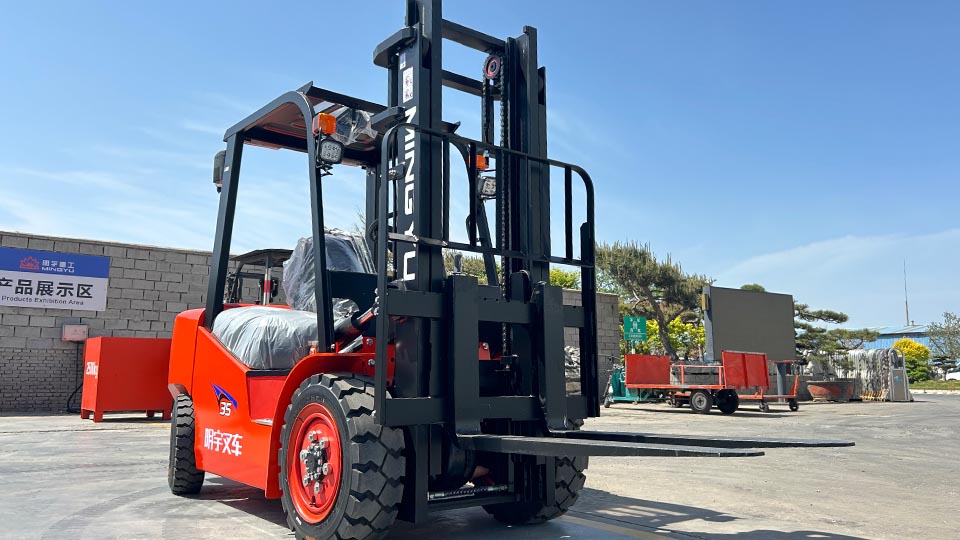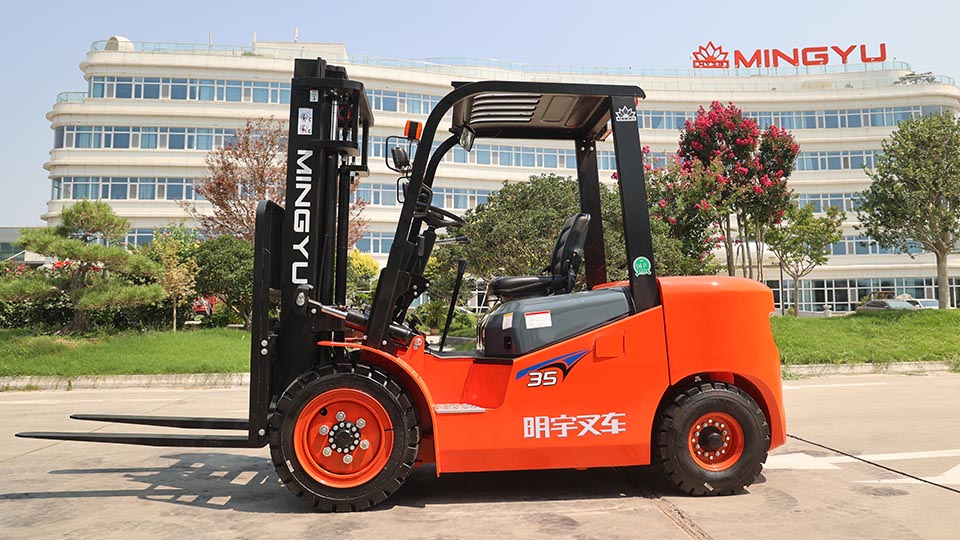
The Fundamental Role of Water in a Forklift Battery
Most electric forklifts are powered by flooded lead-acid batteries. These batteries consist of lead plates submerged in an electrolyte solution of sulfuric acid and water. During the charge and discharge cycles, a chemical reaction occurs that consumes water. This process, known as electrolysis, breaks down the water into hydrogen and oxygen gas, which escape from the battery's vents.
As the water level decreases, the concentration of sulfuric acid increases. If the water level drops too low, the lead plates become exposed to air. When exposed, they dry out and form hard sulfate crystals in a process called sulfation, which permanently reduces the battery's capacity and can lead to irreversible damage.
To maintain the correct electrolyte concentration and keep the plates submerged, you must regularly add water to the battery cells. The type of water you add is the single most important factor for the battery's health.
Why Impurities in Tap Water are a Problem
Tap water, while safe for human consumption, is not suitable for lead-acid batteries. It contains a range of minerals and chemicals, including:
Calcium and Magnesium: These minerals, often responsible for "hard water," can accumulate on the battery plates. This buildup acts as an electrical insulator, increasing the battery's internal resistance and reducing its efficiency.

Iron, Manganese, and Copper: These metals can cause a phenomenon called "self-discharge." They create tiny electrical circuits within the battery, draining its power even when it's not in use.
Chlorine and Fluorine: Used to disinfect municipal water, these chemicals can cause corrosion on the battery's lead plates, leading to structural damage and a shortened lifespan.
Introducing these impurities into a sensitive electrochemical environment disrupts the delicate balance required for the battery to function properly. Over time, the cumulative effect of these contaminants leads to a significant decrease in the battery's run time, a higher risk of premature failure, and ultimately, the need for an expensive replacement.
The Science of Distilled Water
Distillation is a purification process where water is boiled into steam, and the steam is then condensed back into a liquid. This process leaves behind all the non-volatile impurities, such as minerals, salts, and heavy metals. The resulting distilled water is exceptionally pure, essentially just H₂O molecules.
Using this pure water for your forklift batteries provides several key benefits:
Maintains Chemical Purity: Distilled water ensures that the electrolyte solution remains in its ideal state of sulfuric acid and water. There are no foreign ions to interfere with the electrochemical reaction, allowing the battery to operate at peak efficiency.
Prevents Plate Damage: By not introducing minerals that can coat the lead plates, distilled water prevents the formation of insulating layers and sulfation. This keeps the plates active and able to store and release energy effectively.
Extends Battery Life: Regular use of distilled water, combined with proper charging and maintenance, can significantly extend a forklift battery's service life. Given that a new forklift battery can be a major investment, this practice offers a substantial return on investment by delaying the need for replacement.
Distilled Water vs. Deionized Water
While distilled water is the most commonly recommended choice, deionized (DI) water is also a suitable option. Deionization removes mineral ions by passing water through charged resin beads. DI water is often cheaper and more readily available for industrial use than distilled water. Both are excellent for battery maintenance as they effectively remove the harmful mineral ions that cause problems. The key takeaway is to use water that has been purified to remove minerals, regardless of the method.
Proper Battery Watering Procedures
Even with distilled water, improper watering can damage a battery. Here are essential best practices:
Water at the Right Time: Only add water to a fully charged battery. During the charging process, the electrolyte expands. Adding water before charging can cause the electrolyte to overflow, leading to acid spills that can damage the battery, the forklift, and the floor. The only exception is if the plates are exposed before a charge, in which case you should add just enough water to cover them, then perform a full charge, and top off afterward.
Use the Right Tools: A battery watering gun or a single-point watering system is highly recommended. These tools automatically shut off when the correct water level is reached, preventing overfilling. Manual filling with a jug and funnel is less efficient and prone to over- or under-filling.
Fill to the Correct Level: The water level should be just above the plates, typically to the bottom of the vent well. Never overfill a battery. Overfilling can dilute the electrolyte, reduce capacity, and cause dangerous acid spills.
Wear Proper PPE: Always wear personal protective equipment, including gloves, safety goggles, and a face shield, when handling forklift batteries due to the presence of sulfuric acid.

Summary of Benefits
Choosing to use distilled (or deionized) water is a simple yet impactful decision for any operation that relies on electric forklifts. It is a fundamental component of a comprehensive battery maintenance program.
Feature Tap Water Distilled Water
Purity Contains minerals, salts, and chemicals Pure H₂O, free of impurities
Effect on Battery Causes sulfation, corrosion, and reduced capacity Prevents damage, maintains electrolyte balance
Battery Lifespan Significantly shortened Extended, maximum return on investment
Cost Low initial cost, but high long-term replacement costs Slightly higher initial cost, but saves money on battery replacements and downtime
Performance Leads to poor run times and unreliable power output Ensures consistent power output and optimal performance
Ultimately, a forklift is only as productive as its battery. By using distilled water and following proper maintenance procedures, you can ensure your fleet runs efficiently, reliably, and safely for years to come.
Name: selena
Mobile:+86-13176910558
Tel:+86-0535-2090977
Whatsapp:8613181602336
Email:vip@mingyuforklift.com
Add:Xiaqiu Town, Laizhou, Yantai City, Shandong Province, China